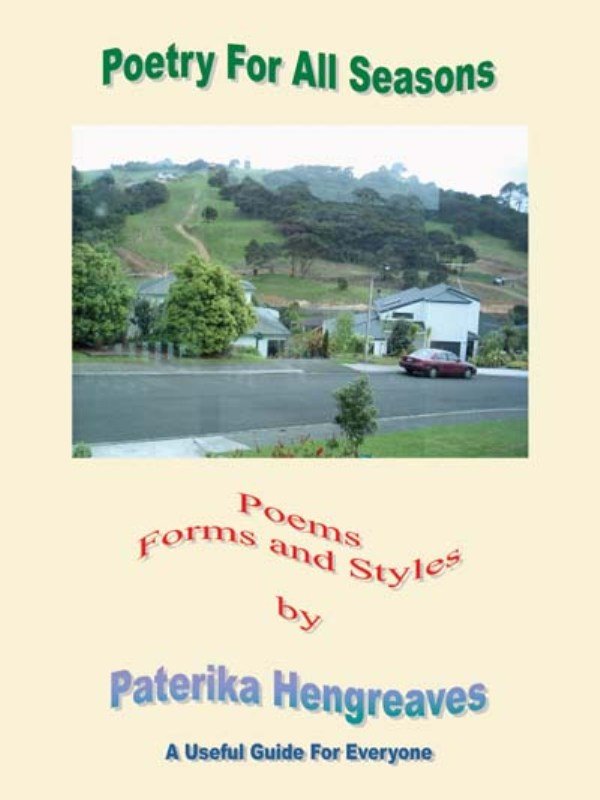The poetic genres which stem from the non-compliant form of poetry are streaming all over the place. If I did not know better I’d say it is some conspiracy out there bent on “killing the bird that laid the golden egg”.
Laughing out loud!
Will they succeed?
Never!
What I envisaged is a state of peaceful coexistence between Fixed Form and Open Form.
Why this optimism?
Take the food industry as an example. Fast-food outlets are all over the place and doing very well monetarily. This has not stopped the gourmet restaurants from doing equally as well.
Why?
Different strokes for different people.
Poetic form is very much more flexible nowadays than ever before. Many modernist and postmodernist poets eschew recognizable forms, and write in non-conformist genres. However, poetry remains distinguished from prose by its form and style. Some regard for basic formal structures of poetry will be found in even the best non-conformist genre like free verse and there can be no denying of the fact. Similarly, in the best poetry written in the classical form there will be departures from strict form for emphasis or effect. Both forms of poetry have useful purposes but what I think poets from both sides of the poetic divide must do is to strive for versatility in their creative endeavours. My sentiments on this are found in the ode written in free verse found in “Poetry For All Seasons”. It goes like this:
Ode to Poetry
Since poetry is the food of the senses,
cart me loads of wholesome flesh,
beneath the skin and on the bone
like a flamingo, I take my time to pick,
and eat with delightful intensity
the savoury cuts of poetry.
With beak-like quills, of granite,
flint and stone, in jaws clinching,
opening to unwind...
flinging words, like flying feathers,
each crafted thought cascading down,
with riddled sensuous thrills;
Myriads of cognitive sparks, light up the mind.
Oh give me poetry to make me grow,
a little fat, and a bit, of this, and that;
a succulent slice of poetry,
our poetic ancestors left behind.
The point which I’m trying to make here is that versatility should be the goal of serious poets. However, the benchmarks found in classical poetry should not be ignored. These standards should propel poets to reach even greater heights as they strive for versatility. A versatile poet dabbles in both forms of poetry. Versatility comes from being familiar with and by practising conventional forms. Traditional forms are great stepping stones for honing the craft of poetry and for extending poetry into new or unchartered waters. However, versatility is achieved through the mastery of poetic techniques and devices.
© Paterika Hengreaves
Laughing out loud!
Will they succeed?
Never!
What I envisaged is a state of peaceful coexistence between Fixed Form and Open Form.
Why this optimism?
Take the food industry as an example. Fast-food outlets are all over the place and doing very well monetarily. This has not stopped the gourmet restaurants from doing equally as well.
Why?
Different strokes for different people.
Poetic form is very much more flexible nowadays than ever before. Many modernist and postmodernist poets eschew recognizable forms, and write in non-conformist genres. However, poetry remains distinguished from prose by its form and style. Some regard for basic formal structures of poetry will be found in even the best non-conformist genre like free verse and there can be no denying of the fact. Similarly, in the best poetry written in the classical form there will be departures from strict form for emphasis or effect. Both forms of poetry have useful purposes but what I think poets from both sides of the poetic divide must do is to strive for versatility in their creative endeavours. My sentiments on this are found in the ode written in free verse found in “Poetry For All Seasons”. It goes like this:
Ode to Poetry
Since poetry is the food of the senses,
cart me loads of wholesome flesh,
beneath the skin and on the bone
like a flamingo, I take my time to pick,
and eat with delightful intensity
the savoury cuts of poetry.
With beak-like quills, of granite,
flint and stone, in jaws clinching,
opening to unwind...
flinging words, like flying feathers,
each crafted thought cascading down,
with riddled sensuous thrills;
Myriads of cognitive sparks, light up the mind.
Oh give me poetry to make me grow,
a little fat, and a bit, of this, and that;
a succulent slice of poetry,
our poetic ancestors left behind.
The point which I’m trying to make here is that versatility should be the goal of serious poets. However, the benchmarks found in classical poetry should not be ignored. These standards should propel poets to reach even greater heights as they strive for versatility. A versatile poet dabbles in both forms of poetry. Versatility comes from being familiar with and by practising conventional forms. Traditional forms are great stepping stones for honing the craft of poetry and for extending poetry into new or unchartered waters. However, versatility is achieved through the mastery of poetic techniques and devices.
© Paterika Hengreaves

No comments:
Post a Comment